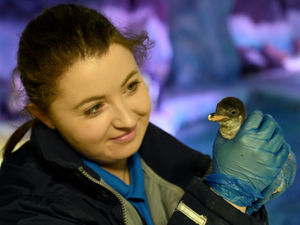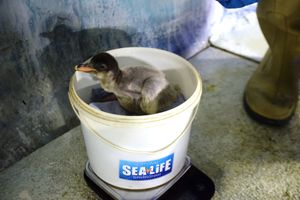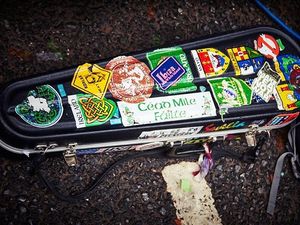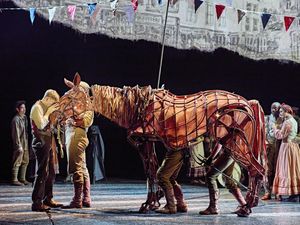Rare baby penguin born at Birmingham's National Sea Life Centre
The pitter patter of tiny flippers are being heard at Birmingham's National Sea Life Centre, as staff celebrate the birth of a rare species of penguin.

The new Gentoo penguin arrival is particularly momentous for the species – with the parents having travelled thousands of miles to conceive as part of Sea Life's global breeding programme.
The baby is also the first Gentoo penguin to be born in the UK this year.
The feathered parents have been caring for the colony's new addition since its hatching. The baby has been nicked 'Flash' by the aquarium's animal care team – due to its quick arrival, after staff had heard the 'pipping' of the shell just 12 hours earlier.

Flash's proud parents are one-year-old male Prince and his older girlfriend four-year-old Hyacinth. Staff were overjoyed with the pairing after clumsy penguin Prince was unlucky in love during mating season last year.
Sea Life Centre curator, Jonny Rudd, said: "We were thrilled to see Prince find a partner this breeding season after his failed attempts to woo a mate last year. It was made even better when we discovered his new girlfriend had an egg.
"This was a real achievement for us as Gentoo penguins are notoriously difficult to breed due to their sensitive nature. We have really worked tirelessly from when the breeding programme was first conceived, over five years ago, to ensure every detail was perfect for our penguins to breed.
"They are both so far doing a brilliant job at keeping our chick warm, fed and looked after, and it won’t be long before it starts to explore the world around him – or her – and even take a dip in the pool."
Population of Gentoo penguins have declined rapidly in recent years – owing to the birds' sensitive breeding nature and damage to their habitats from tourism, pollution and the illegal collection of their eggs. The species has been listed as 'near threatened' on the IUCN red list for many years.





